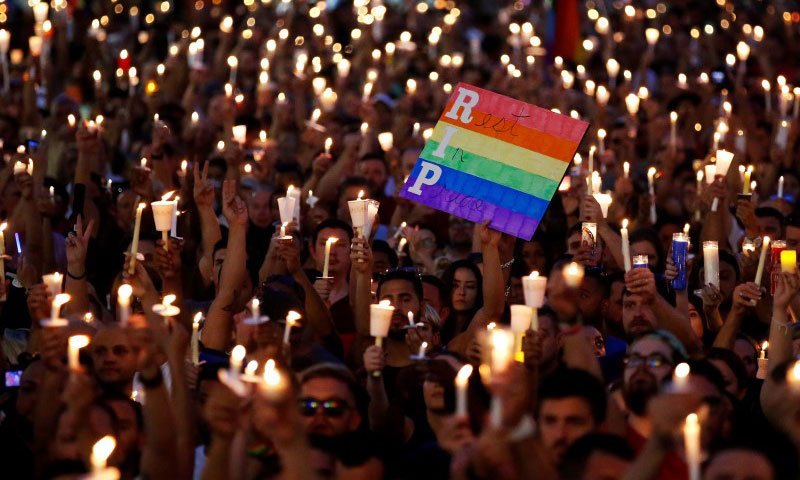
Nightclub Groups Rethink Security Strategies After Orlando Shootings
Two deadly shootings at clubs in Orlando—including a large-scale terror incident at Pulse that's believed to have targeted gay patrons—have nightclub groups weighing how to strengthen security and protect the public.
Two separate tragedies in the Orlando area over the weekend, including what’s said to be the largest mass shooting incident involving a single perpetrator in U.S. history, have many in mourning this week.
In the nightclub industry, the incidents are also driving a lot of discussion on how to keep people safe.
Friday’s fatal shooting of Christina Grimmie, a finalist on season 6 of The Voice, led to the temporary closure of the Plaza Live, the club where she had performed that night, as the music venue reconsidered its security measures. (The venue announced it would reopen on Tuesday.)
The impact of Grimmie’s death was put in an even harsher light after Sunday’s deadly mass shooting at the gay nightclub Pulse, where 49 people died and dozens more were injured. The incident, perpetrated by Omar Mateen, an ISIS sympathizer, raised the specter that the terror attacks that included the Bataclan concert space in Paris could further endanger nightclubs in the United States, specifically those for the gay community.
“What both of these incidents illustrate is that no event is too small and that there are vulnerabilities, regardless of whether these (attacks) are terrorism, hate crimes or someone who is mentally disturbed,” Russ Simons, managing partner at Venue Solutions Group, told USA Today on Sunday. “It’s a completely new day in terms of how we have to look at these things.”
Rethinking Security
In response to the Pulse shooting in particular, local industry groups in big cities like Dallas and Washington, DC, are taking steps to help their members boost security. The D.C. Nightlife Hospitality Association, for one, will hold an intensive two-day security workshop for local nightclubs next month.
“All public spaces are vulnerable today, and Washington is no exception,” Mark Lee, the group’s executive director, commented to WUSA-TV. “But what’s different here is we’re taking steps all the time to ensure the public’s safety as much as possible.”
In Dallas, members of the Cedar Springs Merchants Association, which represents a number of clubs that cater to the LGBT community, plans to get together to discuss the issues raised by the massacre at Pulse. Alan Pierce, the association’s president and a nightclub owner, notes that his place already has armed security guards.
“But it’s a big step up from that to this terrorist thing,” Pierce, who is also a member of the local LGBT-focused Tavern Guild, said to the Dallas Morning News.
The challenge for nightclubs is that they vary widely in size, in levels of security, and in approach. But J.C. Diaz, executive director of the Nightlife Association, tells The Wall Street Journal that even with limited resources, clubs can take steps to prepare for attacks—including training bartenders on how to fight back to prevent a situation from getting worse.
“What it comes down to is doing something versus doing nothing,” he told the Journal.
A candlelight vigil held in honor of the victims of the Pulse nightclub shooting in Orlando, Florida, on Monday night. (Carlo Allegri/Reuters)






Comments